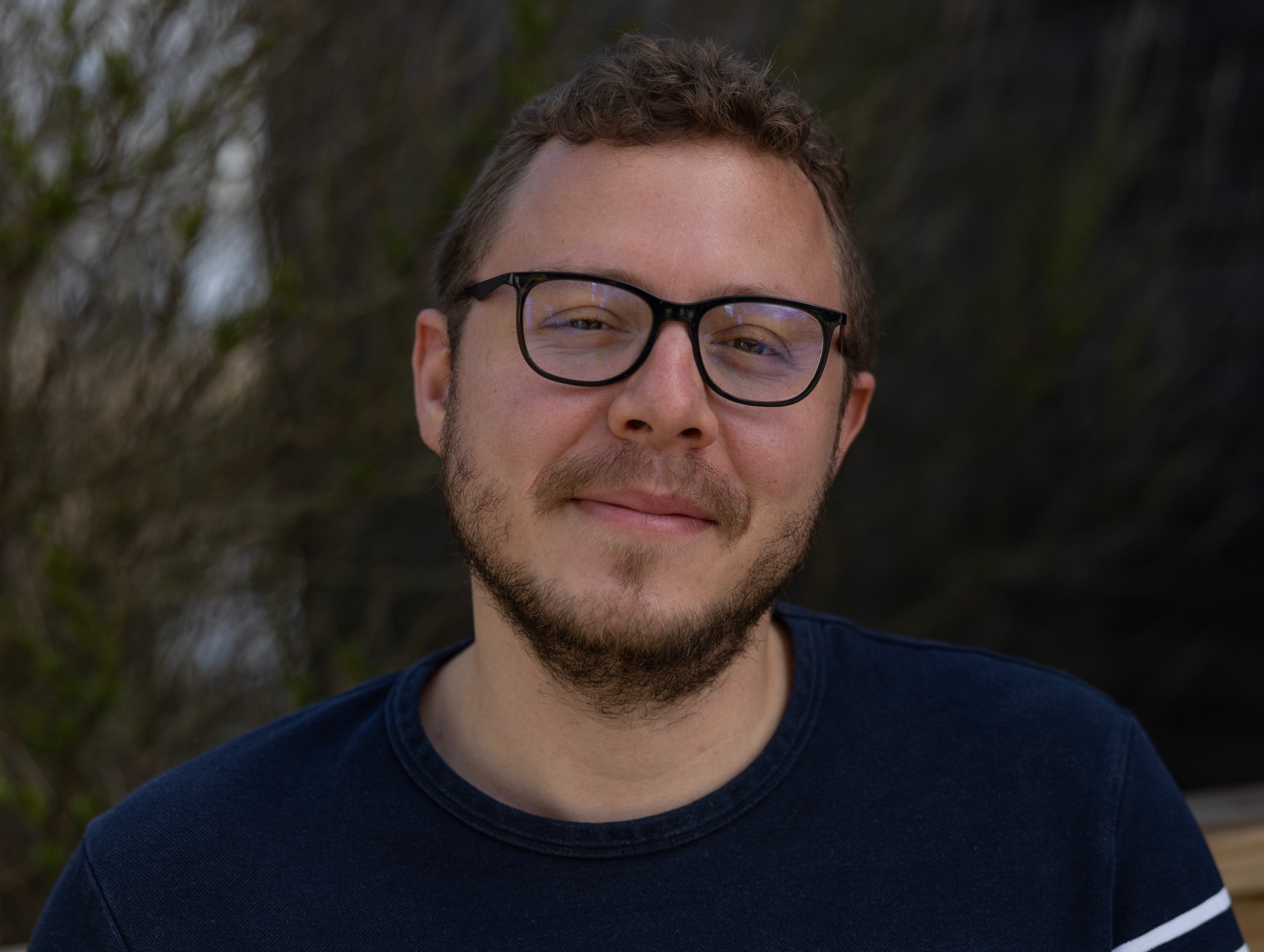
I am a CNRS research scientist working in Paris, France, at LMD/IPSL. I am also a research affiliate at LAB in Bordeaux, France.
My research work lies at the interface between astrophysics, climate sciences and geophysics. I develop and use a hierarchy of sophisticated numerical atmospheric models to study the climates of terrestrial planets located both inside the Solar System (Mars, Earth and Venus) and outside (exoplanets). The goal of this work is to explore new worlds, potentially similar to our own, and from that exploration, to get a unique perspective on our Earth.
While astrophysics fascinates me, I am concerned about the human-driven evolution of Earth's climate. My ambition is to help detect and characterize the atmosphere, clouds and surface of terrestrial-size exoplanets. This scientific endeavour would make it possible to study exoplanets potentially similar to the Earth (at least in size, mass and insolation) but which have evolved in a very different environment from our Earth. It is a unique opportunity to put the Earth, its past and future evolution, in a wider context.
Do not hesitate to contact me for questions, collaboration, or if you are looking for a postdoc/PhD/internship project!
CNRS research scientist
Laboratoire de Meteorologie Dynamique (LMD)
Institut Pierre et Simon Laplace (IPSL)
4 place Jussieu, Tour 45-55, 3eme etage
Paris
FRANCE
Tel: +33 7 82 07 88 40 (mobile)
+33 1 44 27 74 02 (office)
Research Topics and Questions
- Numerical climate modeling of planets and exoplanets. With my colleagues, we develop and use a sophisticated 3-D Global Climate Model (GCM) called "Generic PCM" to simulate all possible types of planetary atmospheres.
- Theoretical and Experimental Spectroscopy, to characterize the radiative properties of atmospheric gases.
- What are the possible climates of rocky exoplanets? How does it relate with their potential habitability? How to observe it with telescopes?
- How to characterize the atmospheres of rocky exoplanets with both low and high-resolution spectroscopy?
- How close the Earth is from a catastrophic runaway greenhouse? What are the conditions required to form and maintain oceans on Earth, Venus, Mars and exoplanets?
- Why and how did Earth escape glaciation (a.k.a. Snowball Earth) events?
- What was the climate(s) and environment(s) of Mars 3-4 billion years ago, while lakes and valley networks were formed?
Short CV
Research- January 2022 - now, I am a permanent CNRS research scientist.
- From January 2019 to December 2021: Postdoctoral researcher at the Geneva Observatory, working with David Ehrenreich, Christophe Lovis, and Emeline Bolmont. Funded by a Marie Sklodowska-Curie fellowship (H2020-MSCA-IF-2018).
- From September to December 2018: Visiting researcher at the University of Chicago funded by FACCTS - France And Chicago Collaborating in The Sciences. Collaboration with Dorian Abbot and Edwin Kite.
- From September 2015 to September 2018: PhD student at the LMD under the supervision of Francois Forget.
- In September 2018: I completed my PhD at Sorbonne Universite.
- In September 2015: I Graduated from the Ecole Normale Superieure.
- In July 2013: I obtained a MSc degree from the Observatoire de Paris and the Institut d'Astrophysique de Paris (IAP) in fundamental physics, astrophysics and astronomy.
- In July 2010: I succeeded in the national highly competitive exam of the Ecole Normale Superieure of Paris (aka ENS Ulm).
- In July 2008: I got my Baccalaureate degree.
- Young Scientist Award (a.k.a. the Gruber followship) of the Gruber Foundation, 2019. Awarded by the International Astronomical Union (IAU).
- PhD prizes of the French Astrobiological Society (2020), French Astronomy and Astrophysics Society (2019), French Physics Society (2019), CNFGG Geophysics Society (2019), Chancellerie des Universites de Paris (2019).
- Public Award for 'my Thesis in 180 seconds', Sorbonne Universite, 2018 (video).
- 1st prize for 'my Thesis in 5 minutes', AFA / Ciel & Espace, November 2015.
Media
- Ciel & Espace newspaper article on the possible existence of ancient oceans on Mars.
- Le Monde, Ciel & Espace newspaper articles on the early formation of oceans on Earth and Venus.
- RTS radio interview on the precise density measurements of TRAPPIST-1 planets.
- Ciel & Espace Podcast "La Science en chemin".
- Podcast Labo des savoirs about possible climates of exoplanets.
- France Info TV (interview) on the nature of TRAPPIST-1 planets.
- France 3 (TV) on the detection of TRAPPIST-1 planets.
- Ciel & Espace (with Podcast) on the detection of TRAPPIST-1 planets.
- France Culture radio show to present my PhD topic.
Teaching
- PhD level course on exoplanet habitability at the RED astrobiology research school (2023)
- Master's level course on planetary habitability at the Department of Astronomy of the University of Geneva (2020-2021) Habitability of solar system terrestrial planets and exoplanets
- Physics teacher at Sorbonne Universite (2016-2018) - 140+ hours Astrophysics / Geosciences / Climate sciences / Space sciences
- MOOC on the habitability of exoplanets (2015-now) Only in french for now. English version will come soon ...
- Physics examiner in a preparatory school for entrance to Grandes Ecoles (2014-2015)
Advising
PhD students- Guillaume CHAVEROT (Geneva University PhD student, 2019-2023). The PhD is co-supervised with Emeline Bolmont, professor at the University of Geneva.
- Alice MAUREL (Sorbonne University PhD student, 2022-2025). The PhD is co-supervised with Jean-Philippe Beaulieu and Pierre Drossart, CNRS senior scientists at IAP.
- Mathilde HOUELLE (Geneva University PhD student, 2022-2026). The PhD is co-advised with Christophe Lovis and Emeline Bolmont (main supervisors), professors at the University of Geneva.
- Robin DEBORDE, ISAE SUPAERO (2023), on "Observing Temperate Rocky Exoplanets at high spectral resolution"
- Rachel SEGUY, ENSTA Bretagne (2023), on "Exploring the stability of oceans on early Venus"
- Shivom GUPTA, University of Geneva student (2021), on "Revisiting the Maximum Greenhouse Effect"
- Ecaterina LEONOVA, University of Geneva student (2020), on "Glacier flows on planets"
-
From Geneva University, Sorbonne University (previously known as UPMC), Paris-Saclay University, Ecole Normale Superieure (ENS)